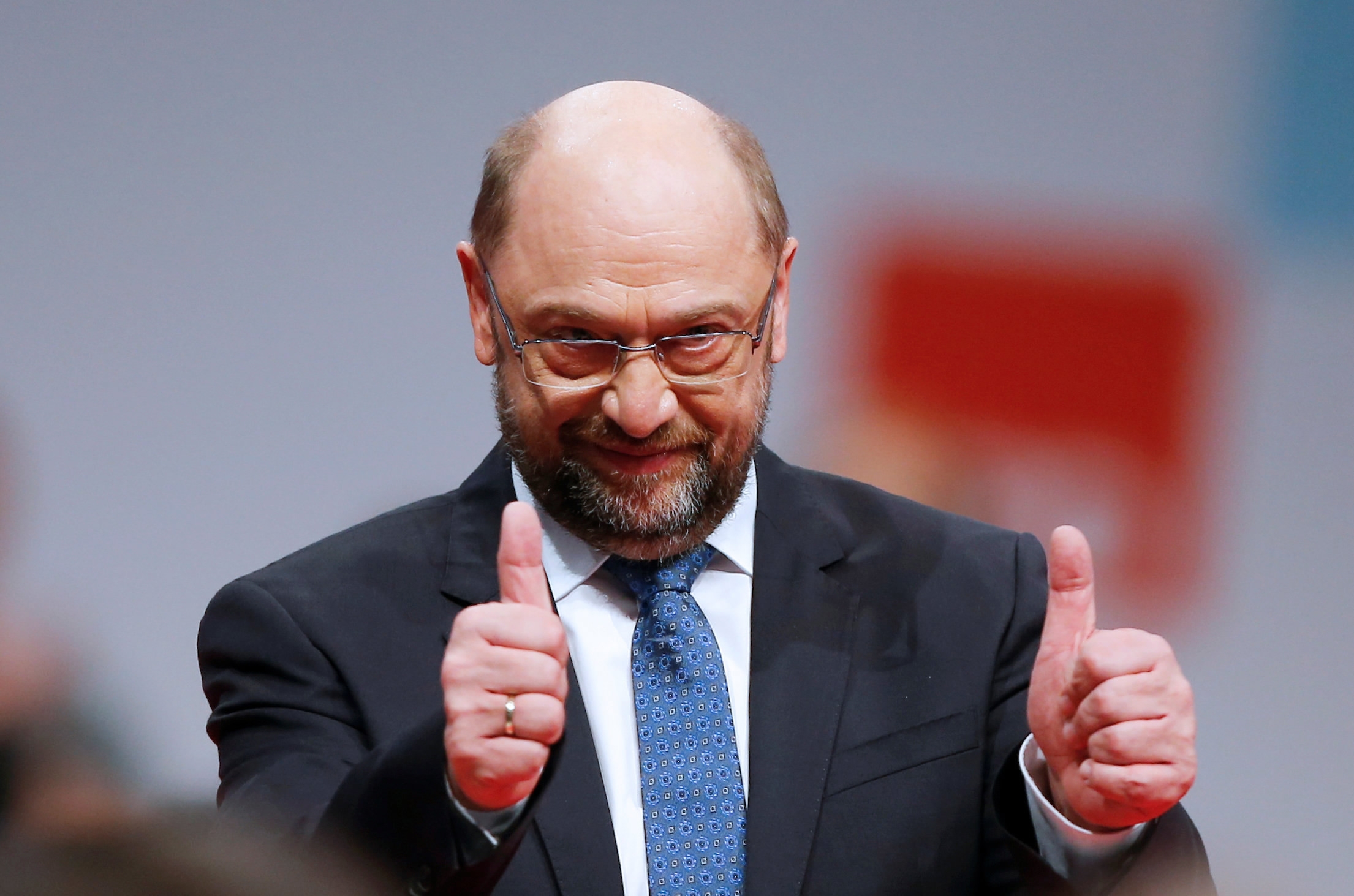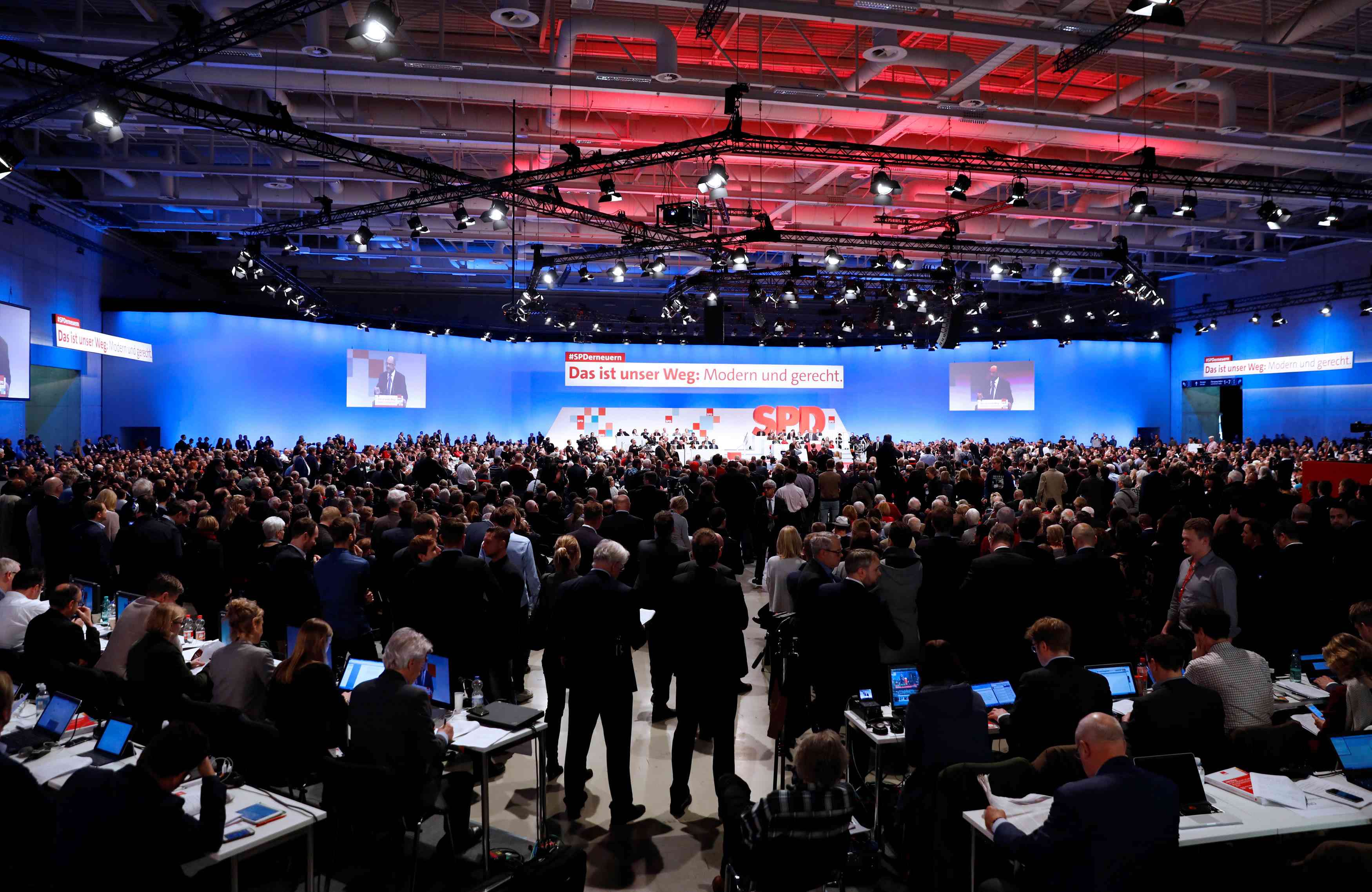
Politics
10:13, 10-Dec-2017
Germany's SPD eyes opportunities for party, country
By Ira Spitzer

Germany's Social Democratic Party (SPD) has reversed position, agreeing to begin coalition talks next week with Chancellor Angela Merkel's Conservatives about forming a new government.
Martin Schulz emerged from the SPD's Congress as the leader again and with a mandate to enter preliminary talks with Merkel's Christian Democratic Union (CDU).
The parties will discuss another so-called "Grand Coalition".

SPD leader Martin Schulz gestures during a party convention in Berlin, Germany, November 7, 2017. /Reuters Photo
SPD leader Martin Schulz gestures during a party convention in Berlin, Germany, November 7, 2017. /Reuters Photo
"We will explore every option,” Schulz said to an audience of around six hundred party delegates in Berlin. “And I'll say it again: there is no automatic decision for any option. But what there is, is my convictions. I want to improve people's lives."
Schulz initially said the Social Democrats would go into opposition, after securing just twenty percent of the vote in the September elections, their worst performance in six decades. However, pressure on the center-left party increased after coalition talks between Merkel’s Conservatives and two other parties failed.
But the Social Democrats are still deeply divided over being the junior partner in Merkel’s government again. However, many party members hope with the Chancellor weakened by the September elections and the breakdown of the separate coalition talks, they would be able to win more concessions.

People listen to Social Democratic Party (SPD) leader Martin Schulz speaking during an SPD party convention in Berlin, Germany, November 7, 2017. /Reuters Photo
People listen to Social Democratic Party (SPD) leader Martin Schulz speaking during an SPD party convention in Berlin, Germany, November 7, 2017. /Reuters Photo
“They also see this as a situation where they can turn an overall political uncertainty and difficulty into political capital,” said Joerg Forbrig, a Transatlantic Fellow at the German Marshall Fund of the United States.
Their demands will likely include revamping healthcare and pension systems, as well as refusing to set an upper limit on the number of refugees Germany can accept. Schulz also called for closer European integration, saying he wanted what he called a United States of Europe by 2025.
The exploratory talks begin next Wednesday and are expected to continue into next year. In the event of a failure, there will be two options – a minority government or fresh elections.

SITEMAP
Copyright © 2018 CGTN. Beijing ICP prepared NO.16065310-3
Copyright © 2018 CGTN. Beijing ICP prepared NO.16065310-3